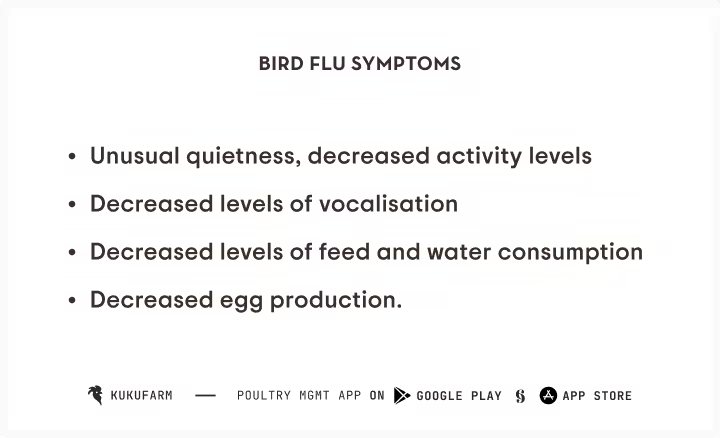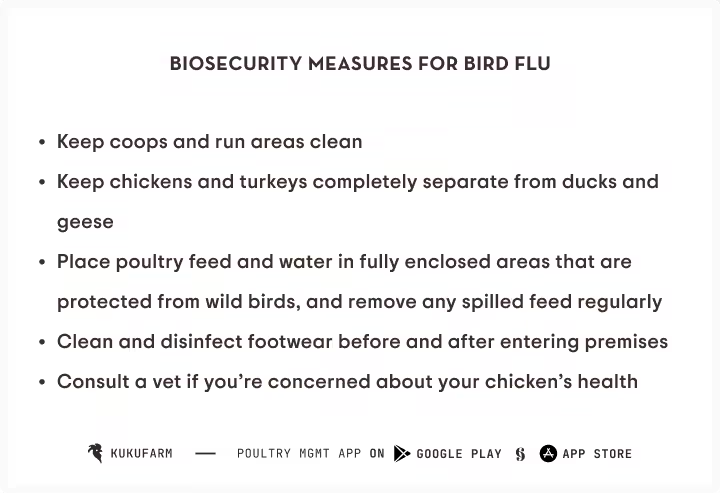A poultry farmers register law has gone into effect as bird keepers are urged to register immediately as the UK government ramps up efforts to combat the escalating threat of bird flu.
The idea of a poultry farmers register makes it kind of unique since the new requirement is targeted at small scale, backyard poultry keepers. That is, poultry keepers with less than 50 poultry birds.
Farmers with more than 50 poultry birds are already required to be registered.

The London Economic reports that according to the new regulation:
- DEFRA – the UK Department of Environment, Food and Rural Affairs – is requiring anyone who owns chickens or other birds in England or Wales to register them by October 1.
- If you have less than 50 chickens, you’ve to register them, failure to which you will be classified as breaking the law
Why a poultry farmers register
The new law is aimed at stopping the spread of avian flu – which has resulted in the loss of millions of birds via culling.

As a registrant, you will be contacted in case of a poultry disease outbreak in your area
DEFRA says that by registering, APHA – the Animal and Plant Health Agency will contact you with updates and guidance if there’s a disease outbreak (such as bird flu) in your area.
- Be contacted in case of poultry disease outbreak in your area
- Prevent the spread of poultry disease
According to them, your registration will help prevent the spread of disease and protect all kept birds, including back-yard flocks.
Not everyone is buying the argument as people flocked to and crashed the registration website with roast chicken from Tesco.
What details to add in the poultry farmers register
The registration process is supposed to be simple affair for you according to DEFRA. As a poultry keeper you should give:
- Contact details
- Details of birds you keep: species, number, and purpose
- Where or how you house your birds
What is bird flu
Bird flu, or avian influenza, is a viral infection that primarily affects birds but can also infect other animals and humans. The virus is categorized into different strains, with H5N1 and H7N9 being among the most notable for their potential to cause severe illness in humans.

Bird flu, one of many poultry diseases, is usually spread through direct contact with infected birds, their droppings, or contaminated surfaces. Typically, symptoms in birds can vary widely, but in severe cases, it can lead to high mortality rates.
As far as we are concerned, safeguarding your chicken against bird flu is the best strategy. Treatment if any may not be as effective.
What you can do to protect your birds
Here are some of the recommended biosecurity measures you can implement to prevent and control bird flu.
Keep coop and run area clean
Maintaining a clean environment is crucial for poultry health; therefore, you should keep coops and run areas clean to reduce the risk of disease and infection. Regular cleaning removes waste and debris while eliminating potential contaminants that could affect your flock.
Another important step involves cleaning and disinfecting your footwear before and after entering poultry premises. Doing so prevents the introduction of harmful pathogens from outside sources and ensures a safer environment for your birds.

Separate chickens and turkeys from ducks and geese
Moreover, you must keep chickens and turkeys completely separate from ducks and geese. Isolating these different species minimizes the risk of cross-contamination, as they may carry various pathogens that threaten the health of your birds.
Prevent feed and water access by wild birds
In addition, place feed and water in fully enclosed areas that protect against wild birds. Wild birds can carry diseases that pose a significant threat to domesticated poultry. Furthermore, make it a habit to remove any spilled feed regularly, as this practice prevents attracting wild birds and other pests.
Consult a vet
Finally, if you notice any changes in your chickens’ health or behavior, consult a veterinarian promptly. Early detection and professional guidance help you address potential health issues before they escalate, ensuring the well-being of your flock.

